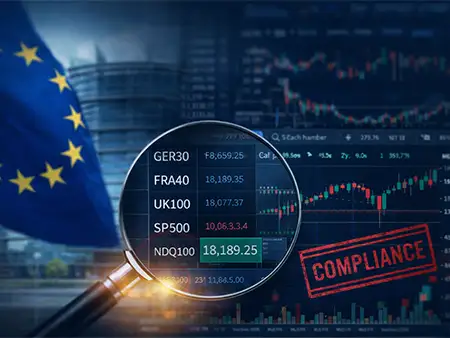GameStop (GME) reported a decline in first-quarter revenue on Tuesday, with shares in the video game retailer dropping more than 4% in after-hours trading.
GameStop stock declined on Tuesday after reporting a decline in first-quarter revenue. Company shares fell 4.6% in after-hours trading on the back of mixed results in its latest quarterly report.
The video game retailer (GME) posted revenue of $732.4 million for the quarter ending 3 May. This figure falls below analysts’ estimates of $754.2 million, representing a 17% decline compared to its $881.8 million year-over-year revenue.
Industry experts have attributed GameStop’s latest results to its inability to adapt to rapidly changing gaming industry trends. Consumer preferences have shifted away from legacy, physical format game purchases towards digital downloads, game streaming and online shopping.
Despite the shortfall in revenue, GameStop did in fact record a net profit of $44.8 million. This is a clear and obvious improvement from the $32.3 million net loss it reported a year ago. The company’s operating loss also narrowed significantly to $10.8 million, down from $50.6 million.
Indeed, GameStop has undertaken significant cost-cutting measures in recent months, including the closure of nearly 600 stores in the US last year. Further store closures are widely expected to take place later this year.
In response to the company’s revenue miss, investors responded coolly. GameStop’s stock slipped, falling to just above $29 per share. The price has remained relatively flat in recent weeks and is down approximately 3.8% so far in 2025.
The Grapevine, Texas-based firm also revealed that it had bolstered its liquidity position. It reported a total of $6.4 billion in cash, equivalents, and marketable securities – up from $1 billion a year earlier. Such cash reserves could support the firm’s future digital strategies.
GameStop stock falls despite Bitcoin buying plan
GameStop revealed that it purchased a total of 4,710 Bitcoin between 3 May and 10 June. The company stated in March that its board had approved the addition of the cryptocurrency as a reserve asset.
In a cash deal worth around $513 million at the time, GameStop financed the purchase through a $1.3 billion convertible notes offering. While the company has not set a cap on its Bitcoin holdings, it has indicated that the assets could be sold if market conditions change.
GameStop sales affected by digital market shifts
The shift towards digital revenue streams remains an obvious challenge for GameStop’s business model. Its hardware and accessories division, which includes new and pre-owned physical game sales, suffered a 32% year-on-year revenue drop.
In a move to streamline its operations and raise funds, GameStop sold its Canadian subsidiary, Electronics Boutique Canada, earlier in the quarter. It is also widely expected to complete the sale of its French division later this fiscal year.
GameStop’s exact strategy in the medium term continues to unfold. The company is seemingly keen to reinvent itself amid a changing digital landscape. Its recent cryptocurrency adoption certainty caught the headlines. It remains unclear whether these strategic shifts will lead to sustained profitability going forward.
Remember to keep updated with all the latest Market News at FXTrustScore.com.






